Year 5
The English curriculum is built around the three interrelated strands of language, literature and literacy. Teaching and learning programs should balance and integrate all three strands. Together, the strands focus on developing students' knowledge, understanding and skills in listening, reading, viewing, speaking, writing and creating. Learning in English builds on concepts, skills and processes developed in earlier years, and teachers will revisit and strengthen these as needed.
In Years 5 and 6, students communicate with peers and teachers from other classes and schools, community members, and individuals and groups, in a range of face-to-face and online/virtual environments.
Students engage with a variety of texts for enjoyment. They listen to, read, view, interpret and evaluate spoken, written and multimodal texts in which the primary purpose is aesthetic, as well as texts designed to inform and persuade. These include various types of media texts including newspapers, film and digital texts, junior and early adolescent novels, poetry, non-fiction and dramatic performances.
The range of literary texts for Foundation to Year 10 comprises Australian literature, including the oral narrative traditions of Aboriginal and Torres Strait Islander Peoples, as well as the contemporary literature of these two cultural groups, and classic and contemporary world literature, including texts from and about Asia.
Literary texts that support and extend students in Years 5 and 6 as independent readers describe complex sequences, a range of non-stereotypical characters and elaborated events including flashbacks and shifts in time. These texts explore themes of interpersonal relationships and ethical dilemmas within real-world and fantasy settings. Informative texts supply technical and content information about a wide range of topics of interest as well as topics being studied in other areas of the curriculum. Text structures include chapters, headings and subheadings, tables of contents, indexes and glossaries. Language features include complex sentences, unfamiliar technical vocabulary, figurative language, and information presented in various types of graphics.
Students create a range of imaginative, informative and persuasive types of texts including narratives, procedures, performances, reports, reviews, explanations and discussions.
(source: www.australiancurriculum.edu.au)
Achievement Standard
Receptive modes (listening, reading and viewing)
By the end of Year 5, students explain how text structures assist in understanding the text. They understand how language features, images and vocabulary influence interpretations of characters, settings and events.
When reading, they encounter and decode unfamiliar words using phonic, grammatical, semantic and contextual knowledge. They analyse and explain literal and implied information from a variety of texts. They describe how events, characters and settings in texts are depicted and explain their own responses to them. They listen and ask questions to clarify content.
Productive modes (speaking, writing and creating)
Students use language features to show how ideas can be extended. They develop and explain a point of view about a text, selecting information, ideas and images from a range of resources.
Students create imaginative, informative and persuasive texts for different purposes and audiences. They make presentations which include multimodal elements for defined purposes. They contribute actively to class and group discussions, taking into account other perspectives. When writing, they demonstrate understanding of grammar using a variety of sentence types. They select specific vocabulary and use accurate spelling and punctuation. They edit their work for cohesive structure and meaning.
(source: www.australiancurriculum.edu.au)
- Plus Plan
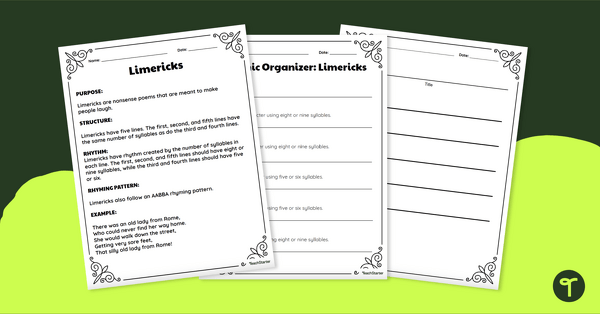
Limericks for Kids - Poem Template
A 3-page limerick template and instructions for students to use when learning how to write a limerick.
- Free Plan
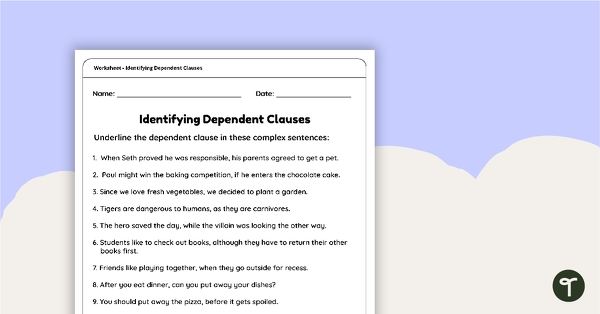
Identifying Dependent Clauses Worksheet
Practise identifying dependent clauses in complex sentences with a dependent clause worksheet.
- Plus Plan
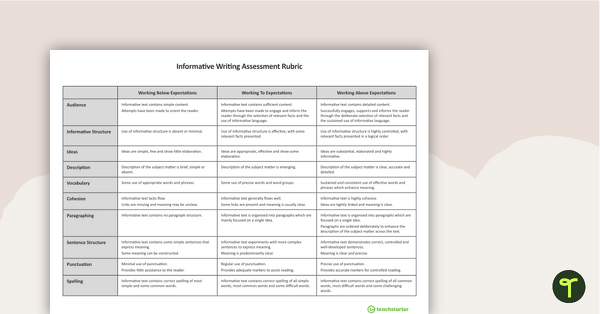
NAPLAN-Style Assessment Rubric - Informative Writing
A NAPLAN-style rubric designed to help teachers to assess students' informative writing.
- Plus Plan
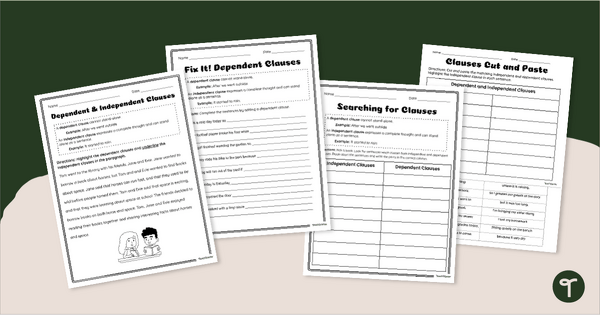
Independent and Dependent Clauses Worksheet Pack
Introduce the concept of independent and dependent clauses with a set of printable sentence structure worksheets.
- Plus Plan
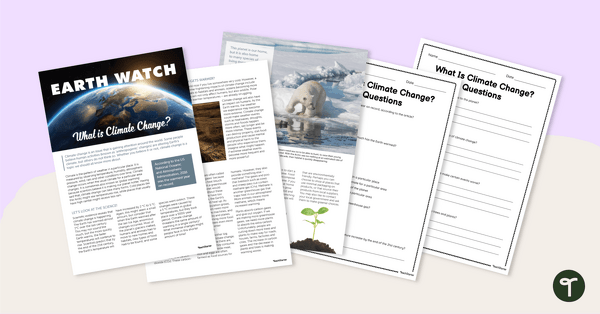
What Is Climate Change? Comprehension Worksheet
Teach your students about the perils of climate change with this comprehensive article with accompanying comprehension questions.
- Plus Plan
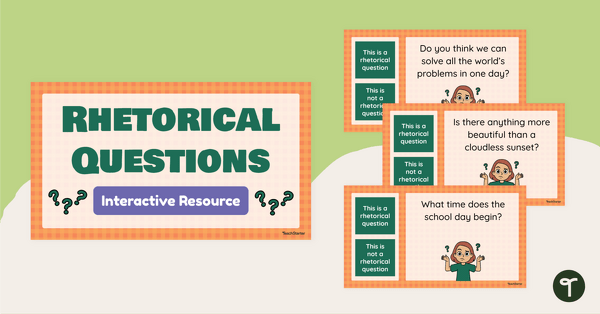
Rhetorical Questions Interactive Activity
Explore rhetorical questions with your students using this digital game perfect for your persuasive writing lessons.
- Plus Plan
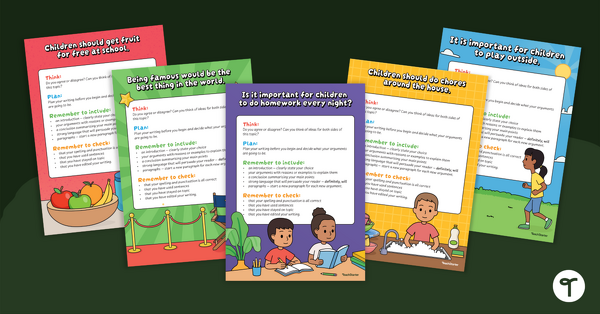
5 Persuasive Writing Prompts
Inspire your students through these relevant persuasive writing prompts.
- Free Plan
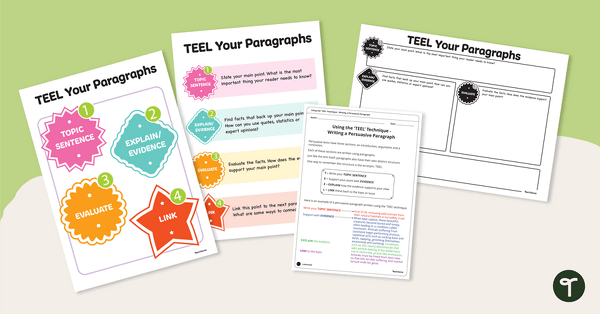
TEEL Paragraph Structure Poster and Worksheets
Explore the acronym TEEL to help with paragraph technique during persuasive writing lessons.
- Plus Plan
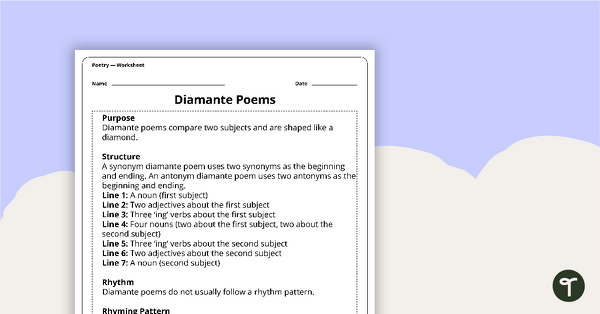
Writing a Diamante Poem Worksheet
A 2 page worksheet for students to use when learning how to write a diamante poem.
- Plus Plan
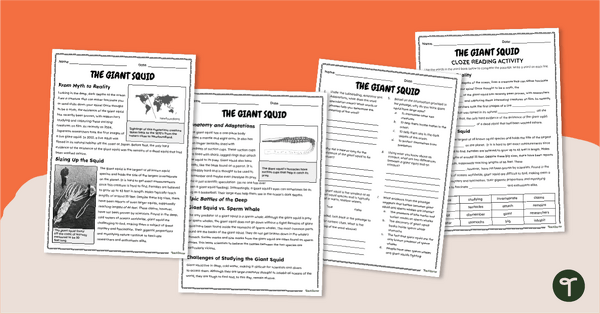
Giant Squid Reading Comprehension Worksheets - Year 5
Read and learn about the features and adaptations of the giant squid with reading comprehension worksheets for years 5 and 6.
- Plus Plan
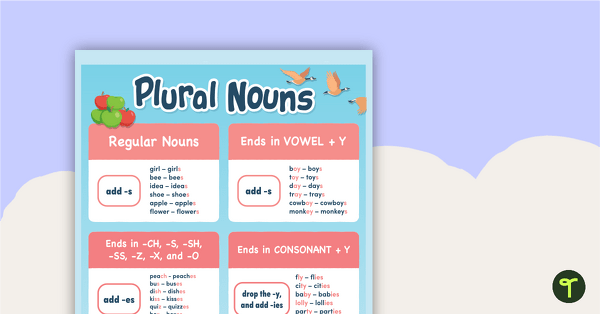
Rules for Plurals - s, es, ies, ves
Display the different rules for plurals with a printable plural noun anchor chart.
- Plus Plan
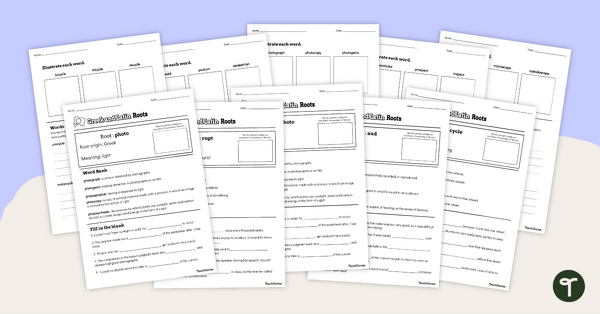
Greek and Latin Roots Worksheet Set
Practise using vocabulary containing Greek roots and Latin roots with these weekly root word worksheets.
- Plus Plan
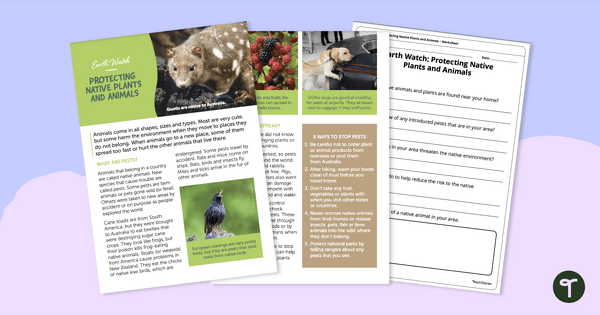
Earth Watch: Protecting Native Plants and Animals – Comprehension Worksheet
Build comprehension skills and learn about human impact on ecosystems with a reading passage and worksheets.
- Plus Plan
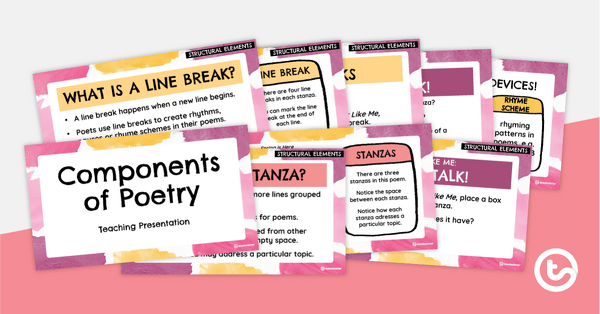
Components of Poetry PowerPoint
An editable PowerPoint to use when teaching the essential components of poetry.
- Plus Plan
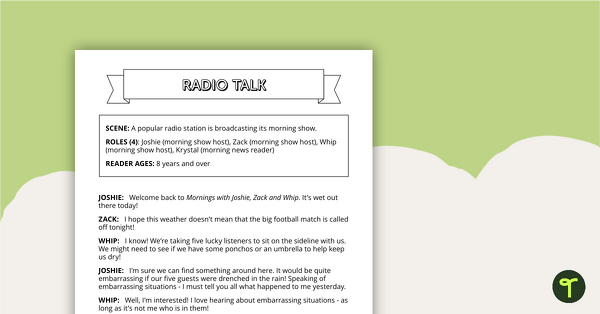
Readers' Theatre Script - Radio Talk
A script which can be used during readers' theatre or Drama sessions, aimed at students 8 years and over.
- Plus Plan
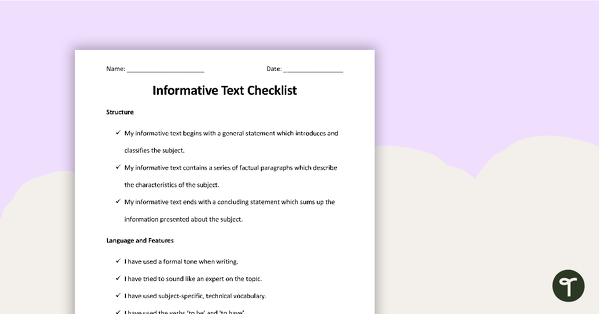
Informative Text Checklist - Structure, Language and Features
A checklist for students to use when proofreading and editing their informative texts.
- Free Plan
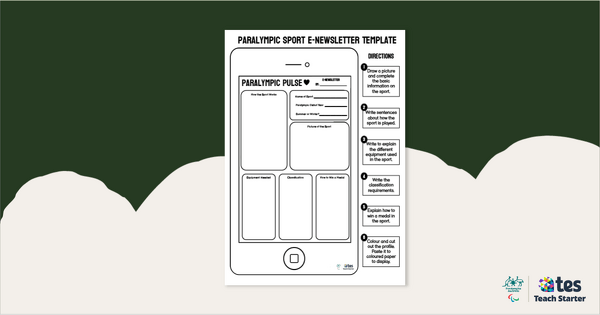
Paralympic Sport Newsletter Template
Enhance learning about Paralympic Sports with our mini social media-style newsletter template.
- Free Plan
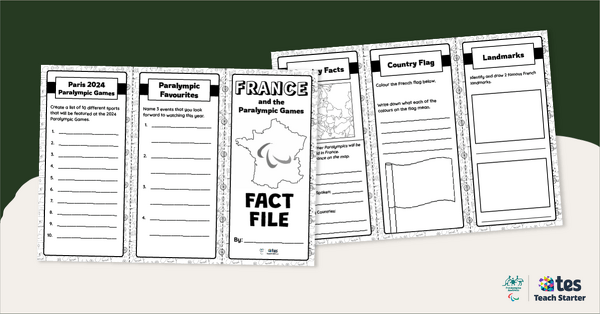
France & The Paralympic Games Brochure Template
Use this tri-fold brochure template to teach your kids to research and discover more facts about France and the Paralympics.
- Plus Plan
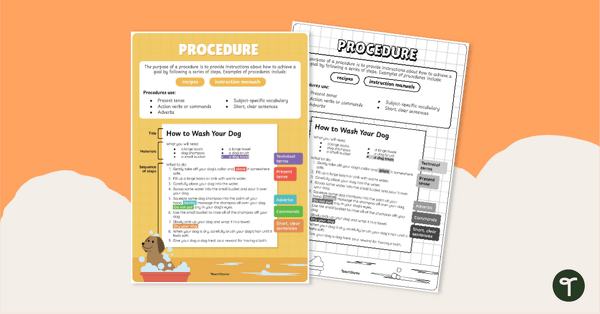
Procedure Text Type Poster With Annotations
Display this procedure text with annotations to help students identify the structure of a procedure.
- Plus Plan
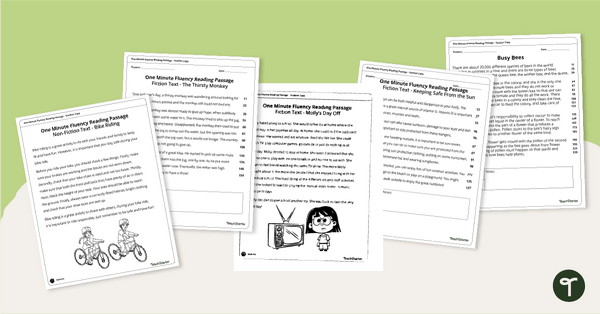
Fluency Reading Passages - Year 5
Assess student fluency with a printable pack of reading fluency passages for Year 5.
- Plus Plan
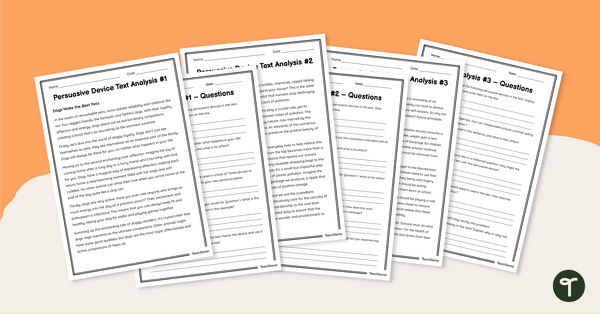
Analysing Persuasive Devices Worksheets
Get students analysing persuasive techniques and their effects on audiences with this set of three texts with accompanying questions.
- Plus Plan
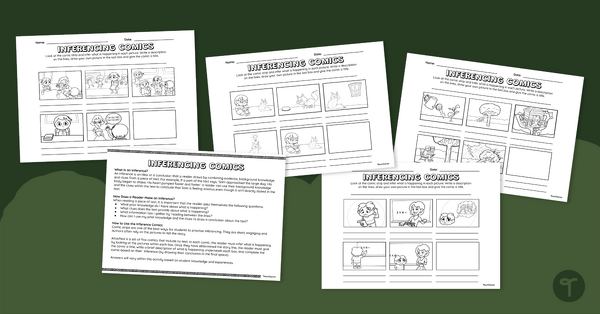
Inference Comics - Worksheet
Use this set of comic strips when teaching your students how to infer information from everyday situations.
- Free Plan
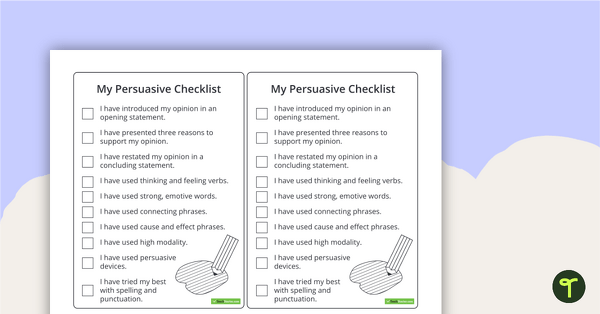
Persuasive Writing Checklist (Simplified Version)
A checklist for students to use when proofreading and editing their persuasive writing.
- Plus Plan
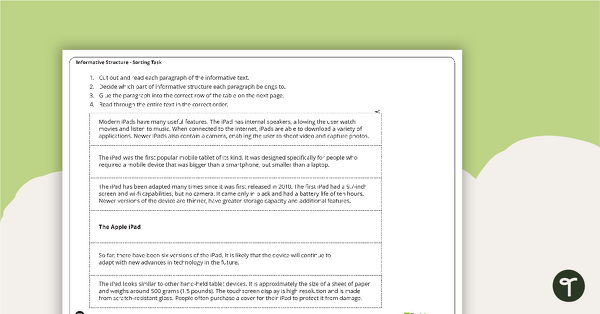
Information Report Structure Worksheet – The Apple iPad
Teach your students about information report structure with this cut-and-paste sequencing worksheet.
- Free Plan
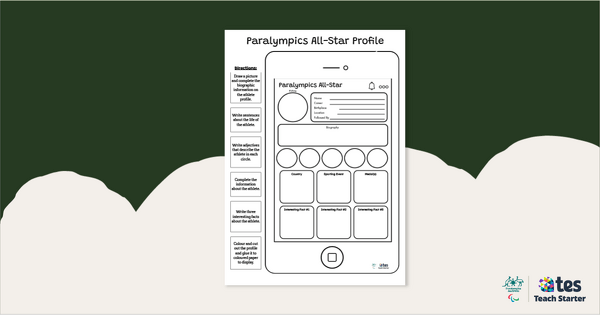
Paralympic All-Stars Social Media Profile Template
Engage your students in learning about All-Star Paralympic athletes with a social media-inspired athlete profile template.
- Plus Plan
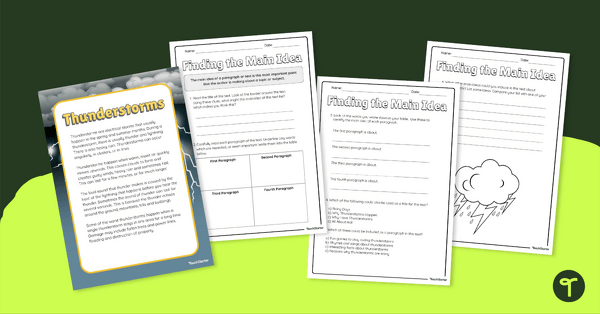
Finding the Main Idea - Comprehension Task (Thunderstorms)
A task to use when teaching your students reading comprehension strategies.
- Plus Plan
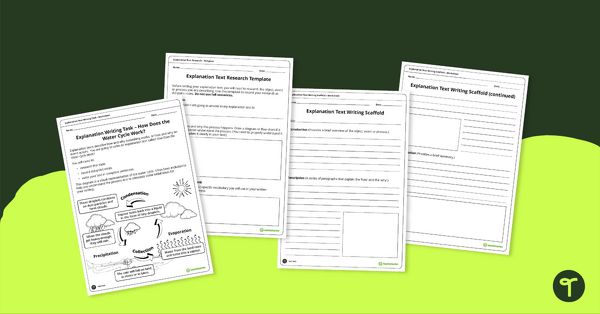
Explanation Text Writing Task – How Does the Water Cycle Work?
A scaffolded writing task for students to complete when learning about the explanation text type.
- Plus Plan
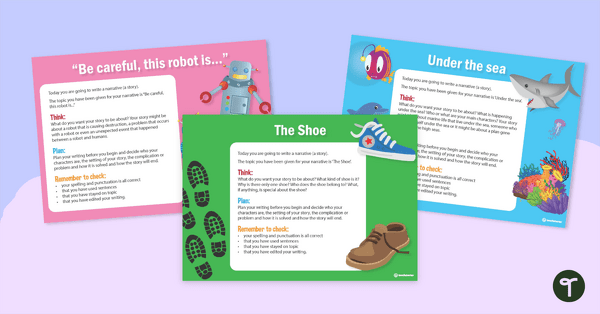
5 Narrative Writing Stimulus Sheets
Writing stimulus sheets with a narrative focus.
- Plus Plan
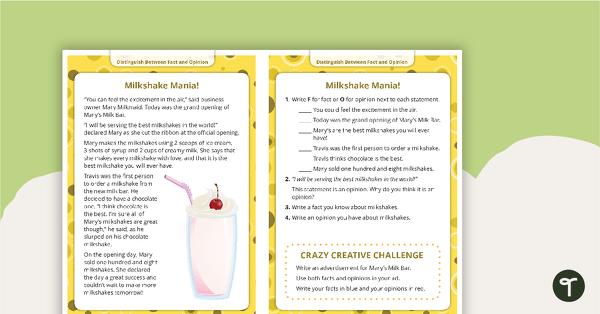
Comprehension Task Cards - Distinguishing Between Fact and Opinion
A set of comprehension task cards to help students distinguish between fact and opinion when reading.
- Free Plan
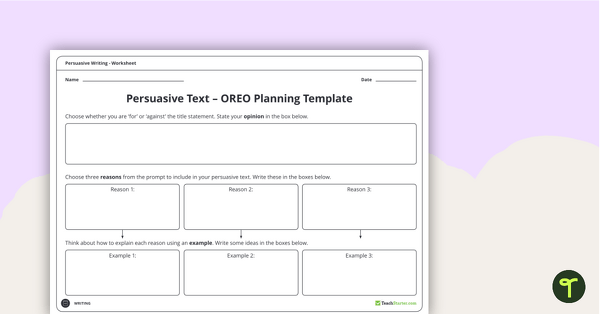
Persuasive Text Planning Template (Using OREO)
A planning template for students to use when writing a persuasive text.
- Plus Plan
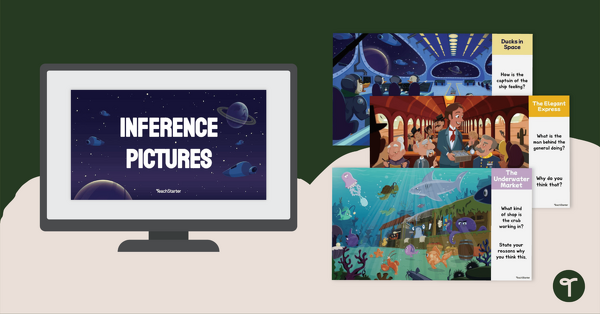
Inference Pictures – Digital Question Pack
Download this set of captivating pictures and thought-provoking questions designed to challenge students’ inference-making abilities.
- Plus Plan
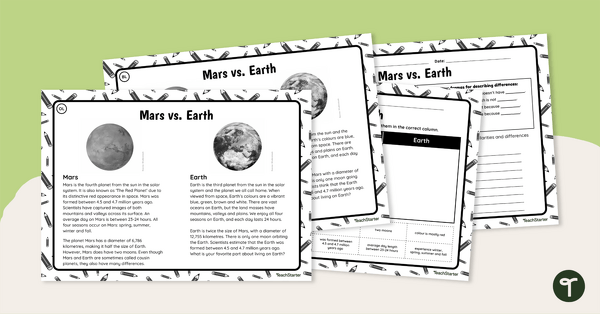
Mars vs. Earth - Differentiated Paired Passage Worksheets
Learn about the planets with differentiated compare and contrast passages, activities and writing opportunities.